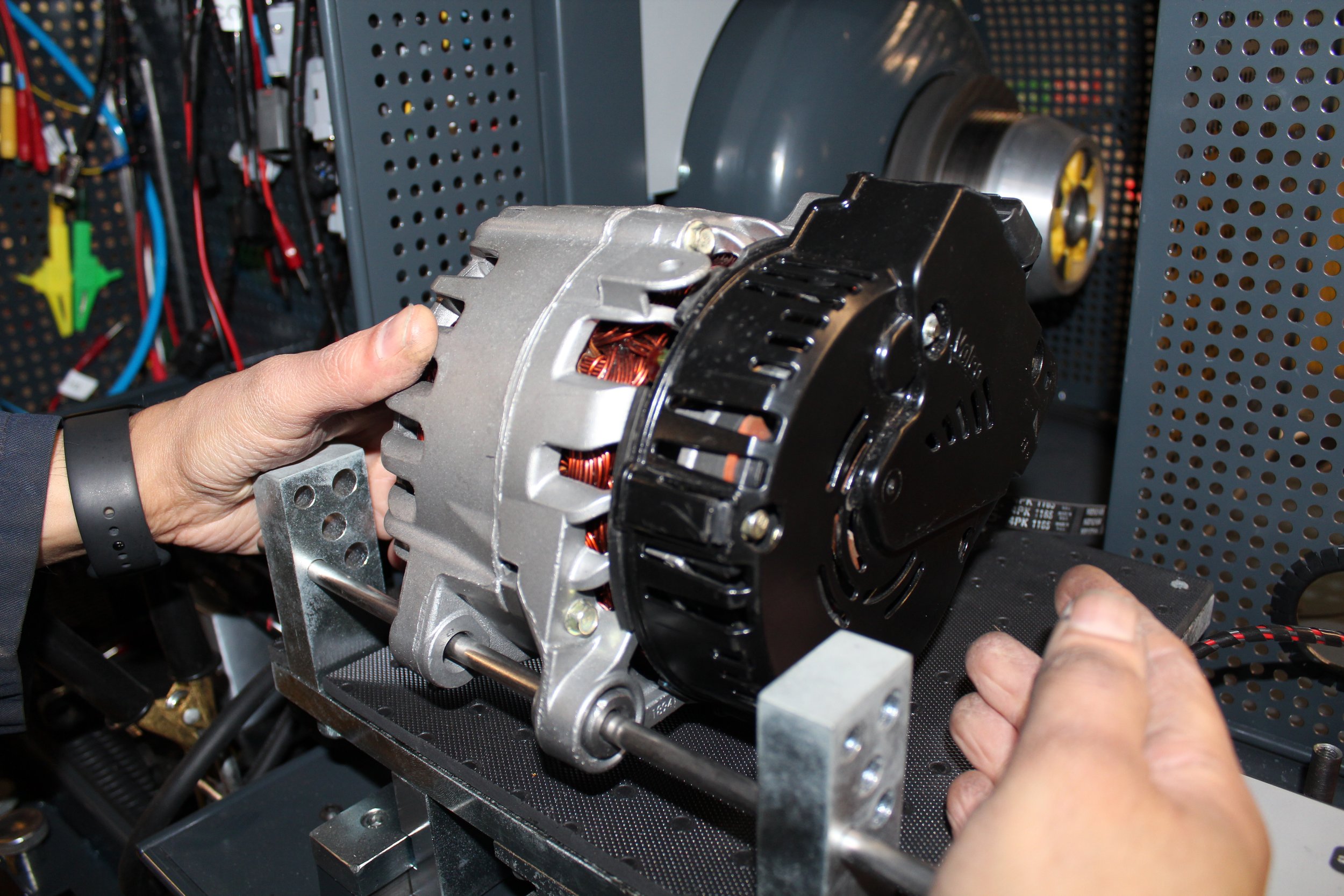Autoelectro reveals how technicians can avoid alternator problems
Communication faults, clutch pulley failures and a lack of software updates are among the most common reasons for modern alternators to fail on vehicles, according to rotating electrics remanufacturer Autoelectro.
After dedicating almost 40 years to the automotive aftermarket, remanufacturing starter motors and alternators, Autoelectro is well-placed to share specific technical insights that should assist both motor factors and technicians.
Each of the four part numbers come with a part-specific advisory warning notice included in the packaging. These notices are designed to help technicians address the root causes of vehicle issues, reducing the risk of starter motor or alternator failures – and minimising returns.
These insights are only deliverable because of the experience and knowledge of Autoelectro’s engineers and technicians, all of whom disassemble old cores and inspect returned returns.
Autolectro’s Harnek Bhogal said: “If our experts notice a common theme or issue on the old cores, we work backwards and put these part-specific technical warning notices with our units to try to make sure the same fault doesn't happen to the units we supply.
Common alternator issues:
AEC1777: Ford Fiesta, Mazda 2 1.4 models (2003-onwards)
A three-pin ECU-controlled alternator – often referred to as Ford Smart Charge – this is supplied with a warning notice advising that there could be a 3.5A discharge fault. If the battery fitted to the vehicle is a standard lead type battery and not the recommended sliver calcium, then the alternator will not function correctly.
AEK2971: Honda Civic/CR-V/Accord 2.2-2.4 models (2006-onwards)
The old cores are often returned because of clutch pulley failure. Consequently, this part number is supplied with an advisory notice that a replacement belt should be fitted and the guide pulley removed. This will reduce the pressure and torque on the clutch pulley.
AEG9005: Peugeot Partner/208/3008/5008, Citroën Berlingo/DS3/C3/C4 1.6 diesel models (2010-onwards)
The note packed into this alternator’s packaging advises that the part must be fitted with an AGM battery as it is an iStARS (integrated Starter-Alternator Reversible System) alternator. Whilst these vehicles are fitted with a traditional starter motor for cold starts, this iStARS alternator replaces the conventional alternator and starter motor to provide the combined function of the two components for more efficient driving experience.
AEG9023NU: Audi A6, A7, A8, SQ5, SQ7, Q8 3.0 diesel MHEV models (2019-onwards)
Autoelectro is currently offering a genuine OE 48V MHEV Belted Starter Generator (BSG). It is connected to the vehicle via a five-pin plug. The first piece of technical advice Autoelectro offers, before even touching the BSG, is to make sure the vehicle software is up-to-date. If the firmware on the vehicle is not consistent with the BSG’s ECU signal, it can cause communication and charging issues.

